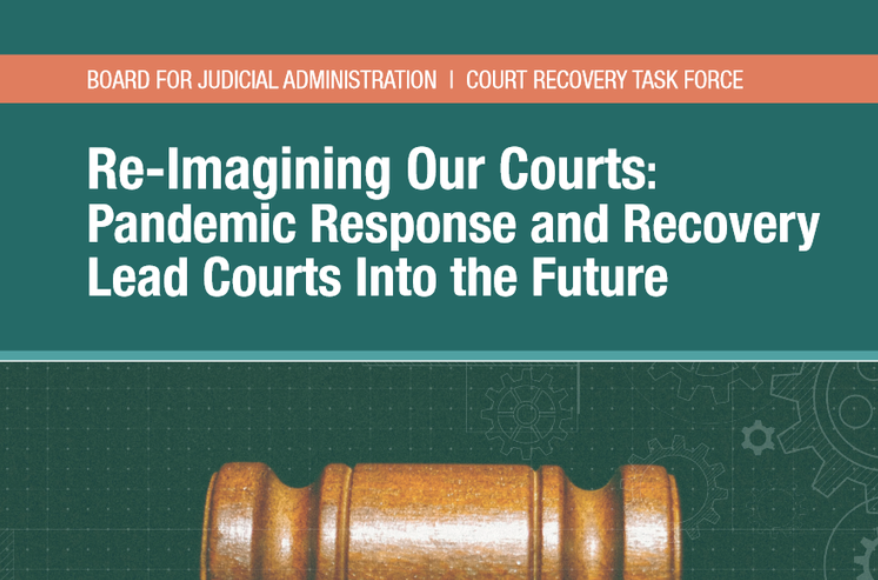Washington State Courts commit to keeping “lessons learned” during pandemic
Court Recovery Task Force report
When it comes to advancements in technology, courts are rarely on the forefront of adoption.
Take our courts in Washington, for example. At one extreme, some counties have had robust e-filing systems for years. At the other extreme, some counties have no e-filing at all, and are reluctant to accept filings in any manner other than physically hand delivered to the clerk. This kind of patchwork approach similarly occurs with things like online access to case dockets and files, equipment available for use (or not) for trials, and so on.
This is not just an issue of speed or convenience. It is an issue of access to justice. Anything that makes it harder, costlier, or more time consuming to utilize our court systems puts a disproportionate burden upon those with fewer resources. And this issue became even more pressing when the Covid-19 pandemic hit.
Thankfully, our courts have not only adapted, but have committed to embracing and building upon those positive changes in the future. In response to the pandemic, the Washington Supreme Court has issued several emergency orders, including adaptations such as expanding the use of electronic filing, electronic signatures, remote video technology for holding depositions, hearings, and even trials. Many individual counties followed similar suit.
Washington’s Board for Judicial Administration also established a Court Recovery Task Force to monitor and investigate these issues, which last month issued a comprehensive report. It notes that although the courts’ adaptations arose out of a crisis, they also “informed a blueprint for our courts to keep evolving into the most efficient, respectful, and just legal system we can become.” It expresses a desire to continue to embrace these positive changes.
There is still much work to do. Some county courts have done better than others in adapting. And we should always be looking forward at what more changes can be made. But it is good to see progress being made and the need for continued vigilance acknowledged.
